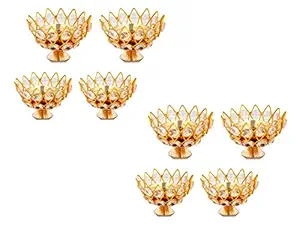અમે તો તારાં નાનાં બાળ,
અમારી તું લેજે સંભાળ ... અમે તો તારાં.
ડગલે પગલે ભૂલો અમારી,
દે સદબુદ્ધિ ભૂલો વિસારી,
તુજ વિણ કોણ લેશે સંભાળ ... અમે તો તારાં.
દીનદુઃખિયાના દુઃખ હરવાને,
આપો બળ મને સહાય થવાને,
અમ પર પ્રેમ ઘણો વરસાવ ... અમે તો તારાં.
બાલ જીવન અમ વીતે હર્ષે,
ના દુનિયાની મલિનતા સ્પર્શે,
અમારું હસવું રહે ચિરકાળ ... અમે તો તારાં.
Meaning of 'Ame To Tara Nana Baal'
Devotional Essence
This prayer reflects the innocence and purity of children surrendering to God with love and trust.
Spiritual Significance
The verse teaches the value of humility and complete faith in the divine.
Cultural Context
This prayer is popular in Gujarati households and is often recited during devotional gatherings.
Language and Expression
Simple Gujarati words make this prayer easy for children to learn and recite.
Connection to Devotees
It builds a bond of devotion, reminding people of God’s protective care like a parent.
Significance of Prayer in Daily Life
Morning Recitation
Reciting this prayer in the morning brings peace and sets a spiritual tone for the day.
Prayer for Children
It is widely taught to children to instill values of faith, love, and devotion from an early age.
Family Bonding
Families often chant it together, strengthening spiritual connection within the home.
Stress Relief
The prayer’s simplicity helps in calming the mind and reducing stress.
Path of Surrender
It encourages surrender to God, reminding devotees that they are under divine care.
Historical and Cultural Background
Traditional Roots
This prayer has been passed down through generations in Gujarat as a part of devotional culture.
Role in Temples
It is often recited in temples during children’s gatherings and special prayer sessions.
Influence in Folk Songs
Many folk songs and Garbas have taken inspiration from this devotional prayer.
Educational Use
It is taught in schools to help children connect with spirituality in their culture.
Preservation of Tradition
Chanting this prayer helps preserve Gujarati spiritual traditions and values.
Spiritual Lessons from the Prayer
Faith and Trust
The prayer inspires complete faith in God’s protection, just like a child trusts parents.
Innocence and Purity
It emphasizes pure-hearted devotion free from selfish desires.
Equality in Devotion
Every devotee, regardless of age, can feel close to God through this prayer.
Path of Simplicity
It teaches that devotion does not need rituals, only a simple and sincere heart.
Divine Protection
Believers are assured that God always protects His devotees, like a guardian.
How to Incorporate This Prayer
Daily Chanting
Make it part of daily prayers at home to bring positive vibrations.
Teaching to Children
Parents can encourage children to learn this prayer to nurture devotion early.
Group Prayer
Chant it in groups during satsangs or gatherings for collective spiritual energy.
During Festivals
It can be included in Navratri, Janmashtami, or daily rituals for blessings.
Personal Meditation
Reciting silently during meditation creates inner calmness and focus.
This prayer reflects the innocence and purity of children surrendering to God with love and trust.
The verse teaches the value of humility and complete faith in the divine.
This prayer is popular in Gujarati households and is often recited during devotional gatherings.
Simple Gujarati words make this prayer easy for children to learn and recite.
It builds a bond of devotion, reminding people of God’s protective care like a parent.
Reciting this prayer in the morning brings peace and sets a spiritual tone for the day.
It is widely taught to children to instill values of faith, love, and devotion from an early age.
Families often chant it together, strengthening spiritual connection within the home.
The prayer’s simplicity helps in calming the mind and reducing stress.
It encourages surrender to God, reminding devotees that they are under divine care.
This prayer has been passed down through generations in Gujarat as a part of devotional culture.
It is often recited in temples during children’s gatherings and special prayer sessions.
Many folk songs and Garbas have taken inspiration from this devotional prayer.
It is taught in schools to help children connect with spirituality in their culture.
Chanting this prayer helps preserve Gujarati spiritual traditions and values.
The prayer inspires complete faith in God’s protection, just like a child trusts parents.
It emphasizes pure-hearted devotion free from selfish desires.
Every devotee, regardless of age, can feel close to God through this prayer.
It teaches that devotion does not need rituals, only a simple and sincere heart.
Believers are assured that God always protects His devotees, like a guardian.
Make it part of daily prayers at home to bring positive vibrations.
Parents can encourage children to learn this prayer to nurture devotion early.
Chant it in groups during satsangs or gatherings for collective spiritual energy.
It can be included in Navratri, Janmashtami, or daily rituals for blessings.
Reciting silently during meditation creates inner calmness and focus.


